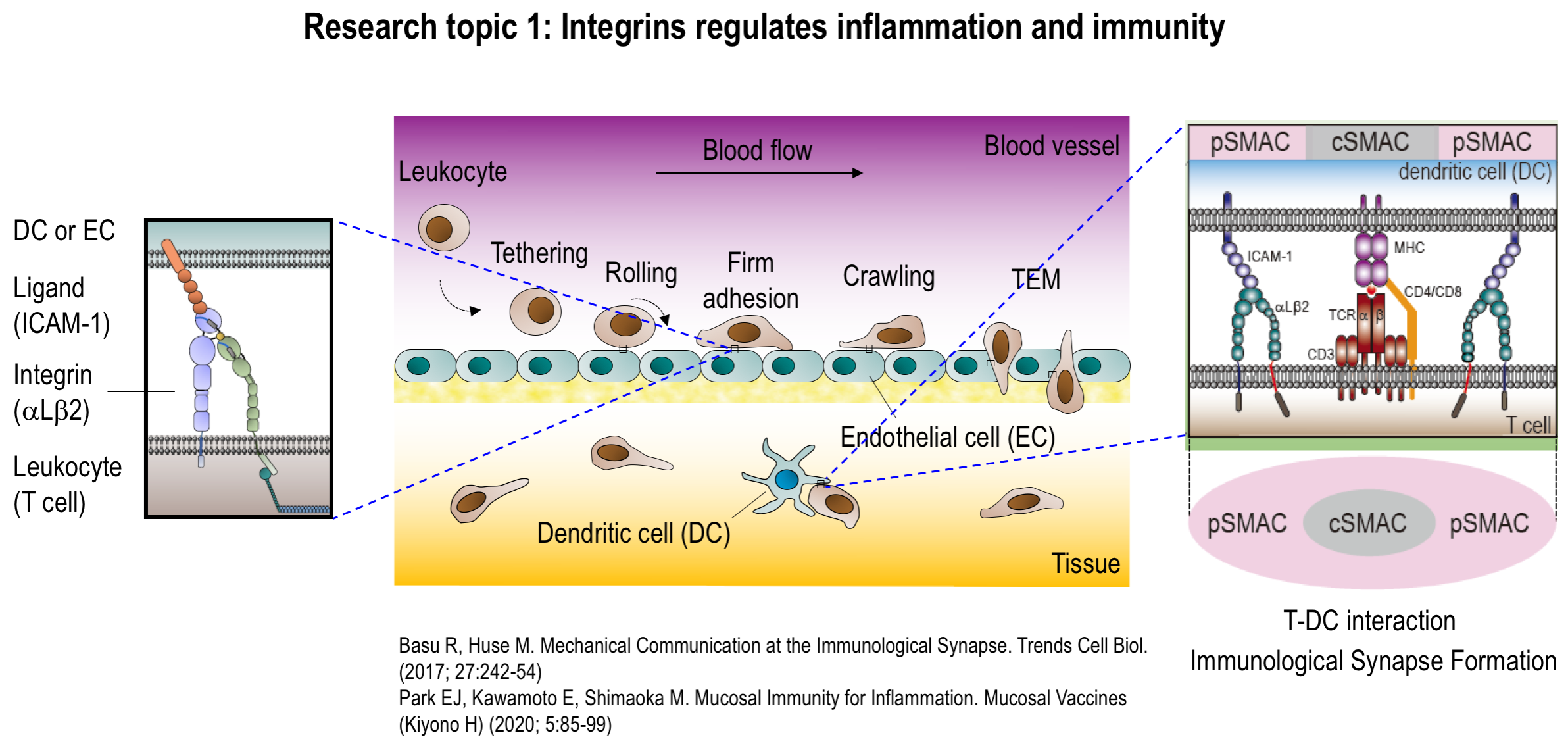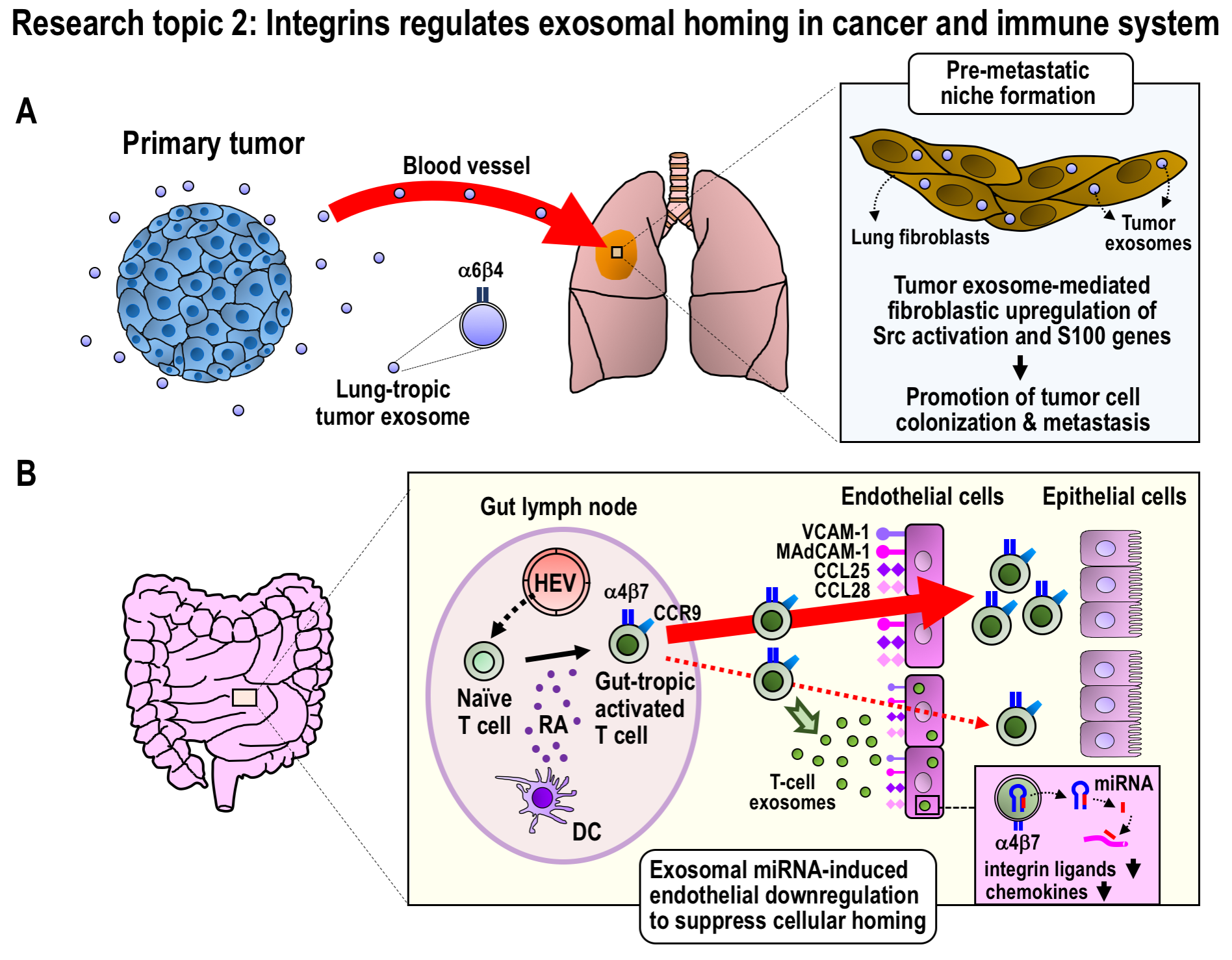Roles of Integrins in Immune Cells, Cancers, and Their Exosomes
Integrins represent the largest family of cell adhesion molecules that mediate cell-to-cell, cell-to-extracellular matrix, and cell-to-pathogen interactions in a wide range of physiology and pathophysiology such as inflammation and immunity, host defense and cancer progression and metastasis, and vascular integrity and thrombosis. Integrins are composed of the alpha and beta subunits that non-covalently associate each other, thereby forming the alpha/beta heterodimeric membrane receptors. Integrins regulate leukocyte-endothelial cell interactions, thereby playing the pivotal roles in the pathogenesis of inflammatory tissue damages. Our laboratory has studied the roles of integrins in health and diseases as well as cells and exosomes using the state-of-the-arts technologies such as CRISPR/Cas9 gene-editing, Nanoparticle Tracking, Protein Engineering, and novel disease models.
We have a team of internationally diverse faculty members and students. All communications in meeting rooms and on the bench are English, thereby providing a friendly environment for international students who wish to study biomedical science in Japan.

